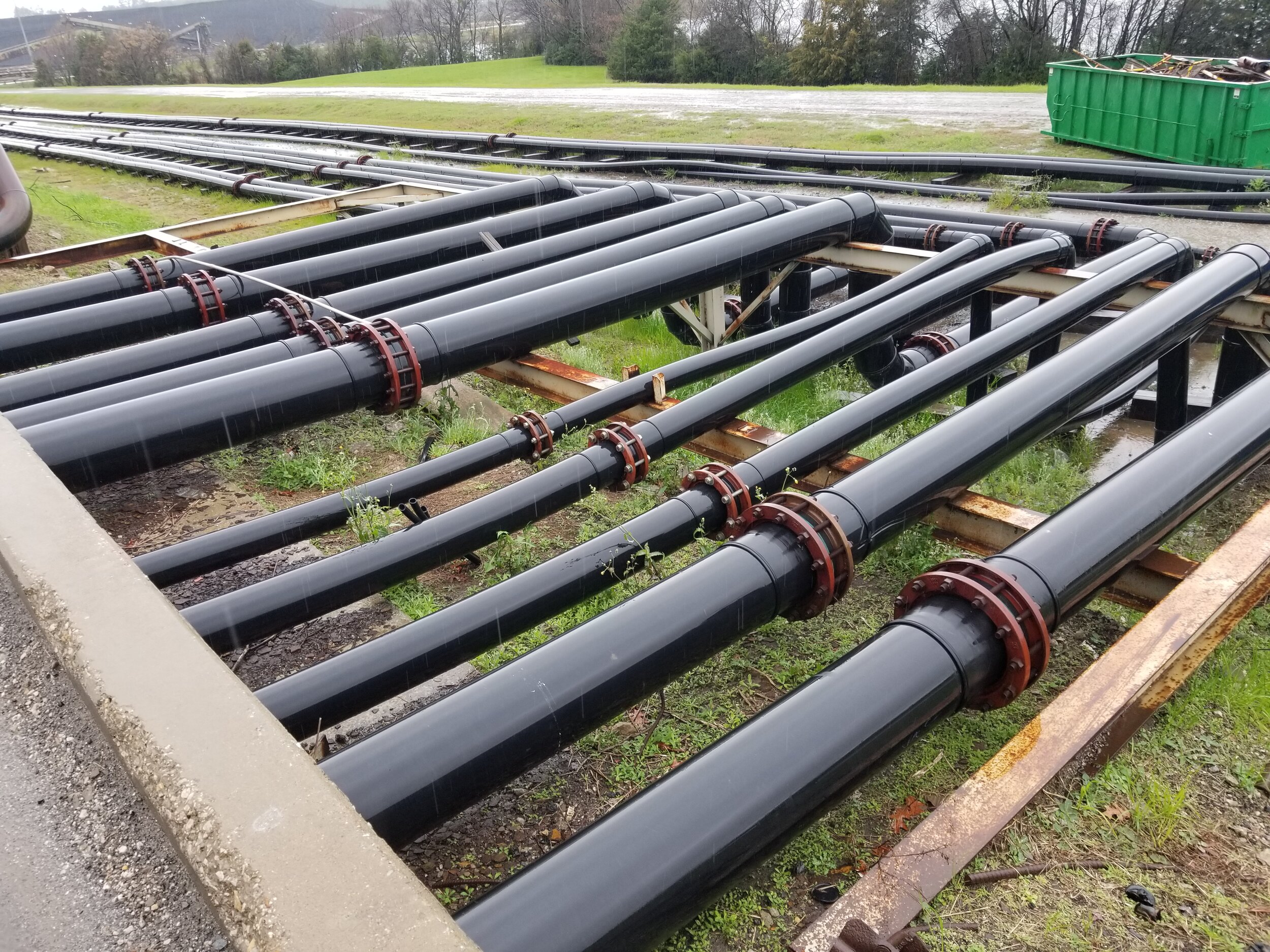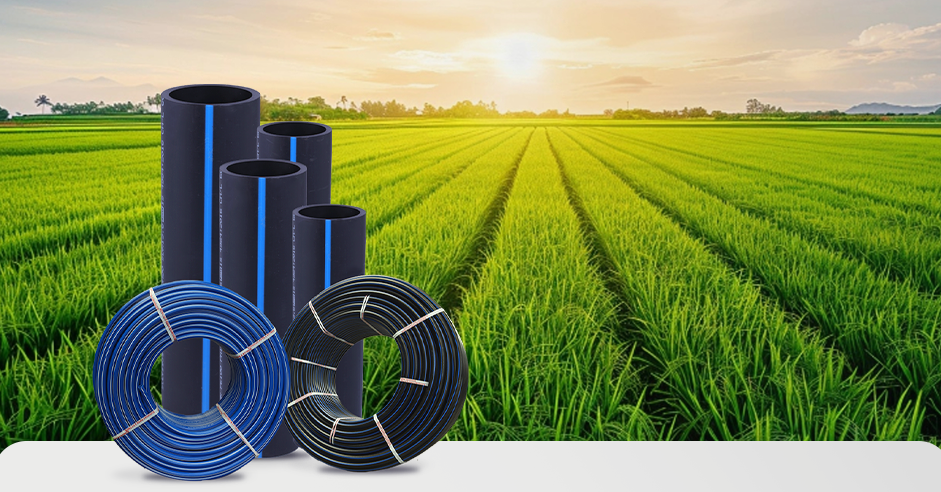Recognizing the Trick Conveniences of HDPE Pipe for Water and Wastewater Administration
Making use of HDPE pipeline in water and wastewater management provides many advantages that warrant factor to consider. Its extraordinary longevity and lengthy life-span make it a favored selection for many tasks. In addition, the product's resistance to corrosion and chemical damage improves its reliability in numerous settings. However, the benefits expand past simply longevity and resistance. Discovering its cost-effectiveness and ecological influence discloses even extra compelling reasons for its extensive adoption in modern facilities
Phenomenal Sturdiness and Longevity

HDPE pipeline stands apart for its extraordinary sturdiness and durability, making it a favored selection in water administration systems. Created from high-density polyethylene, these pipelines can hold up against substantial pressure and stress and anxiety, guaranteeing trustworthy efficiency with time. Their durable nature permits them to withstand severe ecological problems, including temperature level variations and dirt movements, which can create various other materials to stop working.
The lifespan of HDPE pipelines commonly surpasses half a century, offering an economical service for towns and sectors alike. In addition, the material's lightweight residential or commercial properties simplify setup, minimizing labor costs and durations. This sturdiness decreases the need for regular repair services or replacements, even more improving its economic appeal.
In water administration applications, the reliability of HDPE pipelines implies less disturbances and improved service connection, making them integral to sustainable facilities growth. The mix of resilience and durability strengthens HDPE's duty as a foundation in effective water management services.

Resistance to Rust and Chemical Damage
While several materials surrender to corrosion and chemical damages in time, HDPE pipes display exceptional resistance, making them ideal for various water management applications. This resilience stems from the molecular framework of high-density polyethylene, which is naturally non-reactive and does not wear away like steels or break down from direct exposure to extreme chemicals. Consequently, HDPE is highly reliable in settings with hostile compounds, such as wastewater systems that might contain acids, bases, and organic solvents.
Additionally, HDPE pipelines can stand up to ecological variables such as soil level of acidity and saline conditions, additionally enhancing their viability for varied applications (Pipe Manufacturing Midland TX). Their ability to preserve structural integrity with time lowers the danger of leakages and failings, which is important in making certain the safety and reliability of water circulation and wastewater monitoring systems. The resistance to deterioration and chemical damages noticeably adds to the overall performance and durability of HDPE piping services.
Cost-Effectiveness and Economic Benefits
When taking into consideration the financial ramifications of water administration systems, the cost-effectiveness of HDPE pipelines ends up being apparent. These pipes provide reduced setup and maintenance costs contrasted to typical products like metal or concrete. Their light-weight nature simplifies transport and installation, leading to decreased labor costs. Additionally, HDPE pipelines exhibit a long life expectancy, typically going beyond half a century, which converts to fewer substitutes and long-lasting savings.
Additionally, the resistance of HDPE to corrosion and chemical damage reduces the requirement for expensive fixings and replacements. The pipelines additionally sustain effective water circulation, decreasing power prices related to pumping systems. By minimizing leaks and water loss, HDPE pipelines contribute to substantial financial benefits for communities and sectors alike. Overall, the initial financial investment in HDPE piping can produce considerable economic returns over the life-span of the water monitoring system, making it a prudent choice for lasting framework growth.
Ecological Sustainability and Decreased Effect

Convenience and Flexibility in Setup
Due to their special residential or commercial properties, HDPE pipelines supply exceptional flexibility and adaptability in installation, making them ideal for a large range of applications. Their lightweight nature enables simpler handling and transport, minimizing labor costs and setup time. HDPE pipes can be curved and formed to fit numerous terrains and project requirements, which is specifically useful in challenging settings.
Furthermore, their resistance to deterioration and chemical damage permits installation in varied settings without the need for specialized protective finishings. The capacity to fuse joints develops a continual, leak-free system, boosting the general honesty and dependability of the installation. HDPE's adaptability likewise fits ground movement, minimizing the threat of damages in locations vulnerable to changing dirt. In general, these attributes make HDPE pipelines not only versatile but likewise a favored choice for water and wastewater administration systems.
Regularly Asked Inquiries
Exactly How Does HDPE Pipeline Compare to PVC in Water Monitoring Applications?
HDPE pipeline supplies remarkable versatility, resistance to corrosion, and sturdiness Get More Info contrasted to PVC. Its lighter weight facilitates much easier installation, while its lengthy lifespan lowers replacement expenses, making HDPE a preferred choice in water administration applications.
What Is the Life-span of HDPE Water Lines Under Typical Problems?
Under typical conditions, HDPE pipes browse around these guys can have a life-span varying from 50 to 100 years. Their sturdiness and resistance to corrosion add to their lasting performance in numerous applications, making them a trustworthy option for framework.
Are HDPE Water Lines Recyclable After Their Life Span?
Yes, HDPE pipes are recyclable after their life span. hdpe pipe fittings Midland TX. They can be processed and repurposed right into new products, substantially reducing ecological effect and advertising sustainability within the market, making them an eco-friendly choice for piping remedies
What Is the Setup Process for HDPE Piping?
The setup procedure for HDPE pipes entails website prep work, trenching, pipe blend or mechanical joining, backfilling, and pressure screening. Appropriate methods guarantee a long lasting and effective system for delivering water and wastewater efficiently.
Can HDPE Pipes Be Made Use Of for Both Drinkable and Non-Potable Water Solutions?
Yes, HDPE pipes can be made use of for both potable and non-potable water supply. Their versatility, resilience, and resistance to deterioration make them appropriate for different applications, guaranteeing secure and effective transport of water in different contexts.